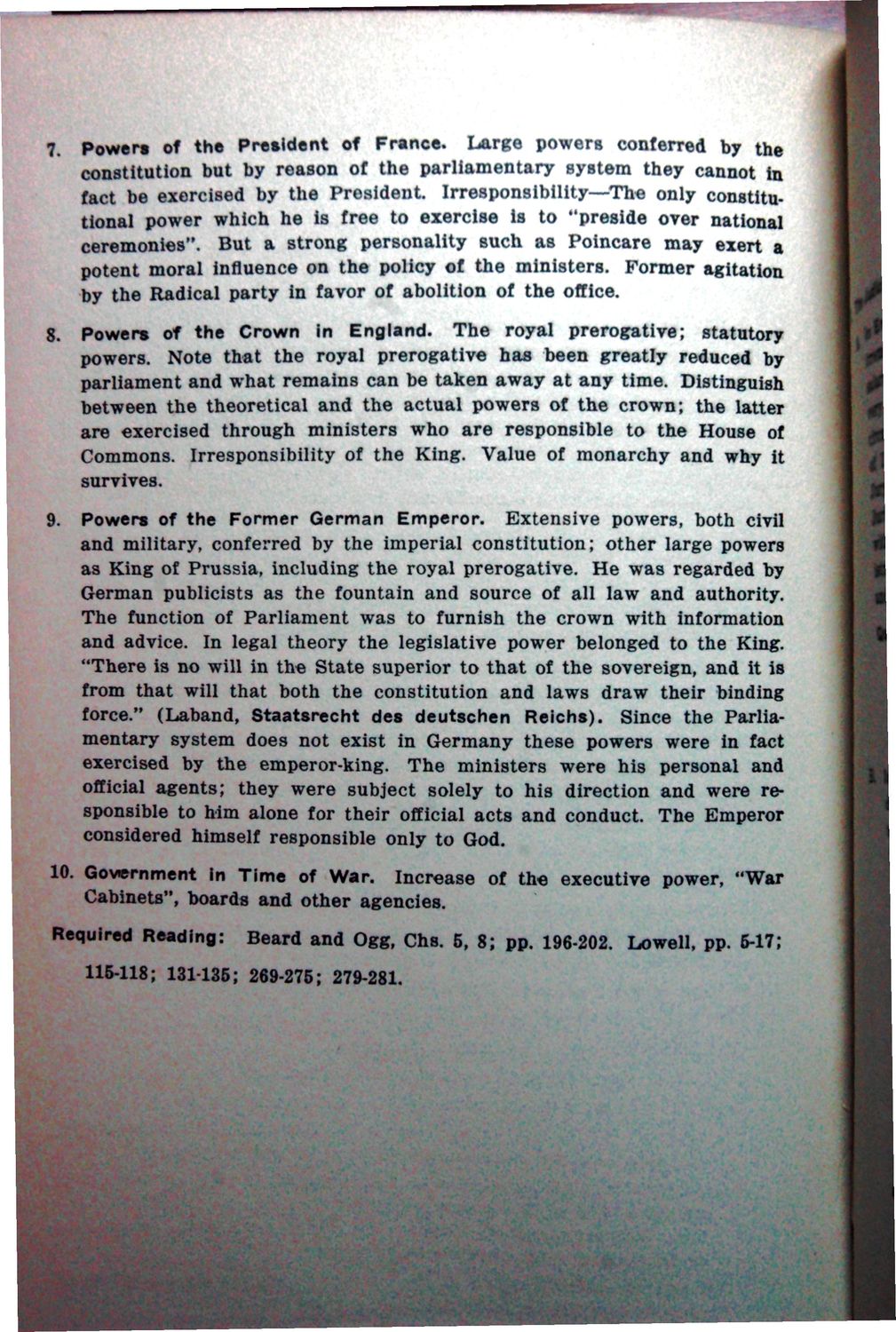| |
| |
Caption: War Publications - WWI Compilation 1923 - Article 48
This is a reduced-resolution page image for fast online browsing.

EXTRACTED TEXT FROM PAGE:
• 7. Powers of the President of France. Largo powers conferred by the constitution but by reason of the parliamentary system they cannot in fact be exercised by the Prosident. Irresponsibility—The only constitutional power which he is free to exercise is to "preside over national ceremonies". But a strong personality such as Poincare may exert a potent moral influence on the policy of the ministers. Former agitation by the Radical party in favor of abolition of the office. 8. Powers of the Crown in England. The royal prerogative; statutory powers. Note that the royal prerogative has been greatly reduced by parliament and what remains can be taken away at any time. Distinguish between the theoretical and the actual powers of the crown; the latter are exercised through ministers who are responsible to the House of Commons. Irresponsibility of the King. Value of monarchy and why it survives. 9. Powers of the Former German Emperor. Extensive powers, both civil and military, conferred by the imperial constitution; other large powers as King of Prussia, including the royal prerogative. He was regarded by German publicists as the fountain and source of all law and authority. The function of Parliament was to furnish the crown with information and advice. In legal theory the legislative power belonged to the King. "There is no will in the State superior to that of the sovereign, and it is from that will that both the constitution and laws draw their binding force." (Laband, Staatsrecht des deutschen Reichs). Since the Parliamentary system does not exist in Germany these powers were in fact exercised by the emperor-king. The ministers were his personal and official agents; they were subject solely to his direction and were responsible to him alone for their official acts and conduct. The Emperor considered himself responsible only to God. 10. Government in Time of War. Increase of the executive power, "War Cabinets", boards and other agencies. Required Reading: Beard and Ogg, Chs. 5, 8; pp. 196-202. Lowell, pp. 6-17; 115-118; 131-135; 269-275; 279-281.
| |